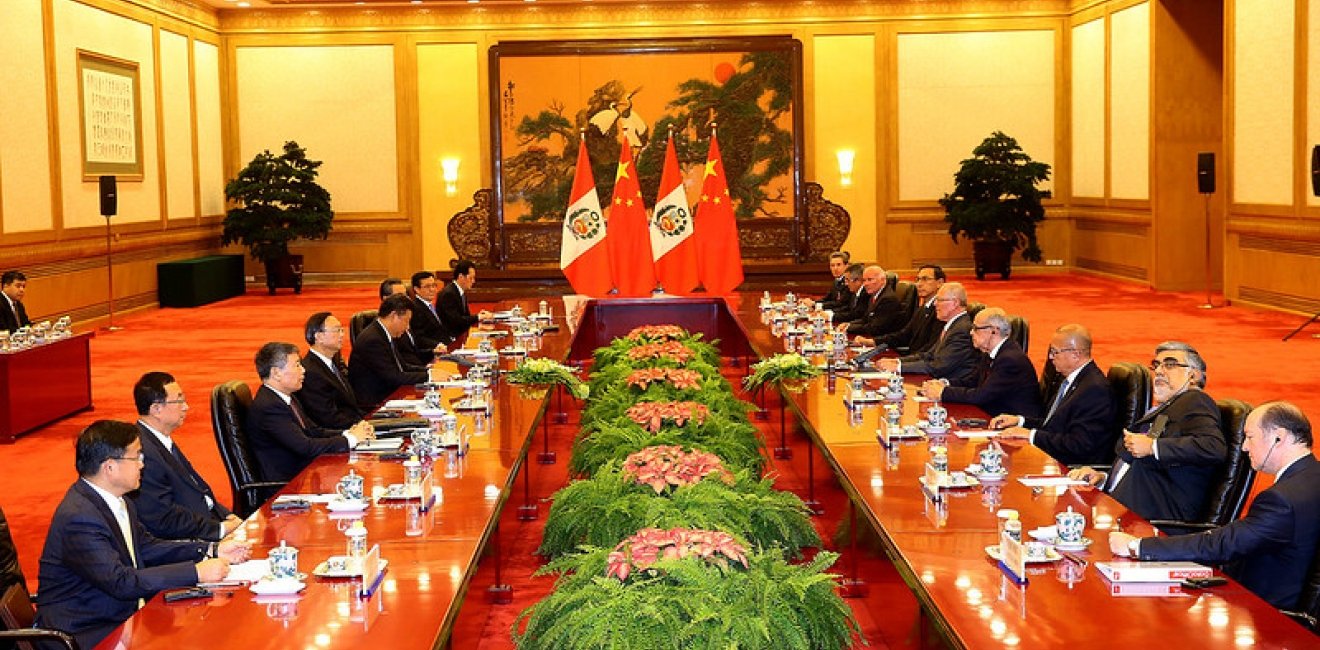
A blog of the Latin America Program
For a decade, China’s major electricity companies have been laser focused on energy generation and transmission in Latin America and the Caribbean, a trend accelerated by the departure of Western competitors, including Brazil-based Odebrecht and U.S. and European companies.
The latest evidence is a new, sizeable deal in Peru, where the Italian company Enel is downsizing its presence. China Southern Power Grid, established alongside Chinese energy giant State Grid in 2002, is looking to fill that gap. The company is reportedly preparing a bid for Enel’s Peruvian energy distribution assets, valued at $3 billion.
That project would add to China’s countless power generation and distribution investments across the region over the past two decades. According to the Boston University China’s Global Energy Finance database, China’s development finance institutions – the China Development Bank and China Export-Import Bank – have financed nearly $10 billion in energy generation and distribution projects in Latin America and the Caribbean since 2000, with Chinese companies and China’s commercial banks supporting even more deal-making in this sector.
For example, Figure 1 shows a mere sampling of Chinese hydropower generation projects in just four countries, Bolivia, Brazil, Ecuador and Peru. China’s presence in power generation and transmission is far greater when taking into account other forms of energy generation, such as wind and solar, and it will continue to grow as new Chinese dams and other projects come online.

Beijing’s appetite for energy investments in this region is still strong, even as it dials down its lending for other major infrastructure projects. Having recently cut ties with Taiwan, Honduras is reportedly negotiating a credit line with China for the development of the Patuca II hydroelectric dam, part of the country’s plans to develop a 600 MW hydroelectric complex. The Industrial and Commercial Bank of China had previously loaned $287 million to Honduras for the Patuca III dam project, which came online in 2021.
Chinese investments in this sector are largely welcome in Latin America, where inadequate energy infrastructure harms economic competitiveness, imposes high costs on households and businesses, and leads to power interruptions in many places. Still, Chinese energy projects are occasionally met with resistance. In Peru, for example, the China Three Gorges company and related Chinese firms have viewed as attempting oligopolistic behavior, given their large presence in the electricity sector.
Those fears increased in 2020, when China Yangtze Power, a China Three Gorges subsidiary, announced plans to acquire Luz del Sur, Peru’s largest utility company, responsible for delivering electricity to the south of Lima and beyond. In the deal, China Yangtze Power would also acquire interests in Inland Energy, which was involved in the Santa Teresa I dam and in the construction of the Santa Teresa II, Lluclla and Lluta power generation plants. China Three Gorges also has stakes in Peru’s Chaglla and San Gaban III dams. (Peru’s National Institute for the Defense of Free Competition and the Protection of Intellectual Property ultimately approved the deal, but it required Luz del Sur to purchase its electricity through public auctions until 2030 to assure a level playing field for other energy producers in the country.)
Chile has also expressed concerns about an unhealthy concentration of energy sector assets in the hands of a single foreign actor. The country’s national economic prosecutor, the Fiscalía Nacional Económica, scrutinized Chinese acquisitions after China Southern Power Grid bought a stake in the energy transmission firm Transelec in 2018 and State Grid bought energy distributor Chilquinta Energía in 2019 and CGE in 2020. With the GCE deal, State Grid controlled over 57 percent of Chile’s regulated energy distribution. However, Chilean regulators ultimately approved the Chinese acquisitions.
China’s presence in Brazil’s energy sector is also booming, though apparently without provoking national security or competition-related debates. According to researcher Pedro Henrique Batista Barbosa, Chinese companies own in whole or part 304 power plants in Brazil, accounting for 10 percent of Brazil’s national energy generation capacity. Nearly half of São Paulo’s hydropower generation capacity is owned by Chinese firms. Chinese companies also own about 12 percent of the country’s energy transmission infrastructure.
The future of China’s Belt and Road Initiative remains uncertain, but it is clear that China is reconsidering the scale of its global infrastructure spending, given economic headwinds at home and the hard lessons it has learned operating in emerging markets. However, as is clear in China’s proposed new investments in Peru, the power sector in Latin America and the Caribbean is a major exception, especially renewable energy production, electricity transmission and related technologies and services.
Author

Director, Asia and Latin America Program, Inter-American Dialogue

Latin America Program
The Wilson Center’s prestigious Latin America Program provides non-partisan expertise to a broad community of decision makers in the United States and Latin America on critical policy issues facing the Hemisphere. The Program provides insightful and actionable research for policymakers, private sector leaders, journalists, and public intellectuals in the United States and Latin America. To bridge the gap between scholarship and policy action, it fosters new inquiry, sponsors high-level public and private meetings among multiple stakeholders, and explores policy options to improve outcomes for citizens throughout the Americas. Drawing on the Wilson Center’s strength as the nation’s key non-partisan policy forum, the Program serves as a trusted source of analysis and a vital point of contact between the worlds of scholarship and action. Read more


Kissinger Institute on China and the United States
The Kissinger Institute works to ensure that China policy serves American long-term interests and is founded in understanding of historical and cultural factors in bilateral relations and in accurate assessment of the aspirations of China’s government and people. Read more

Explore More in Weekly Asado
Browse Weekly Asado
Dengue Haunts South America’s Summers

Lessons from Costa Rica’s Economic Transformation

Women and Latin America’s Digital Revolution

